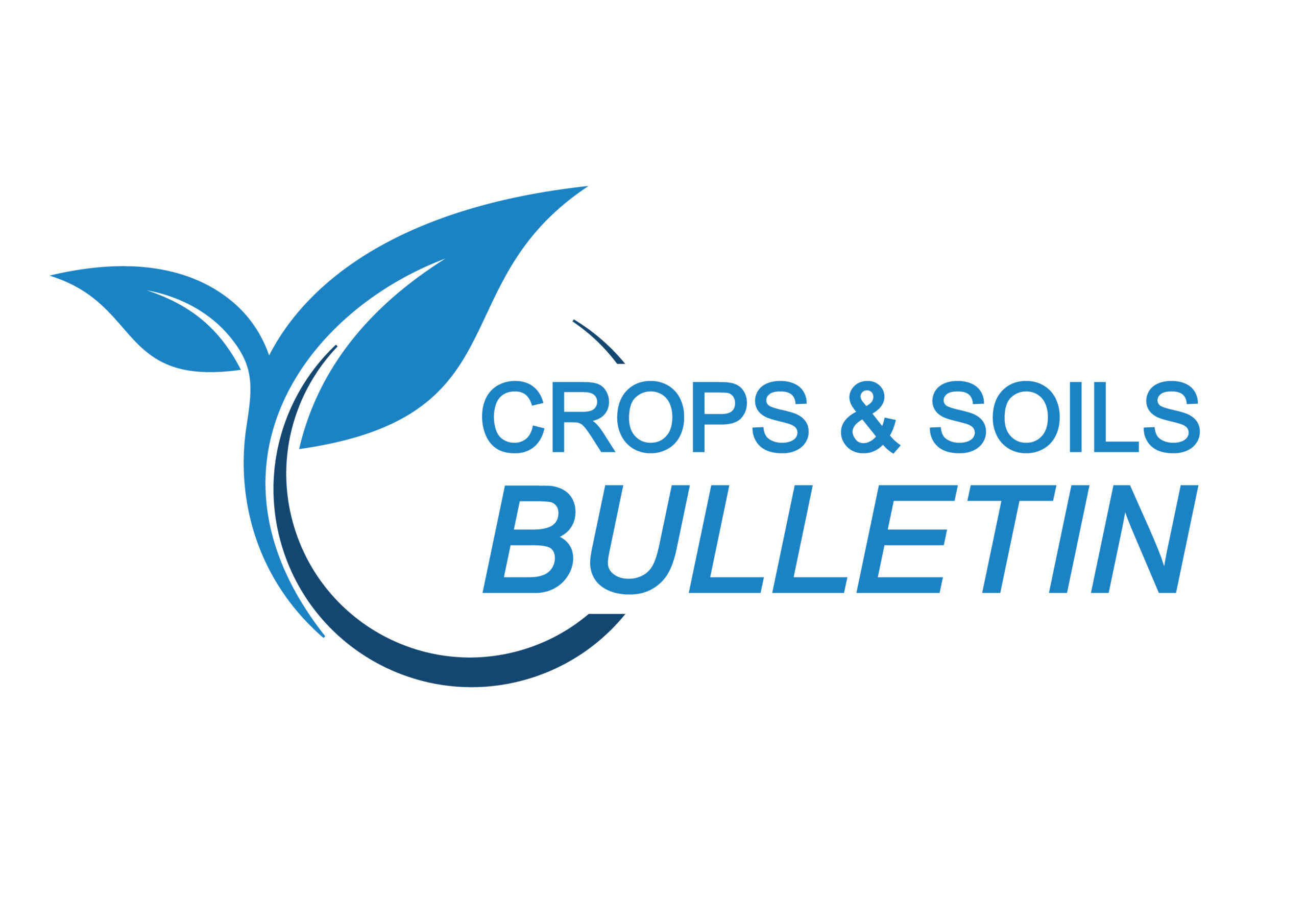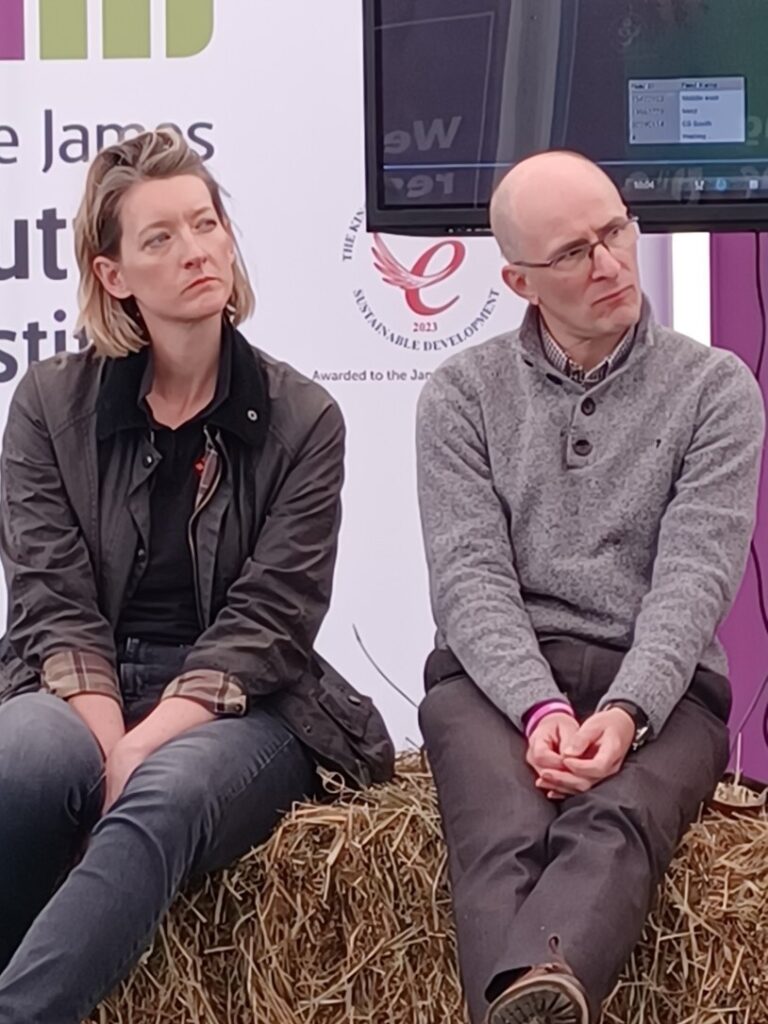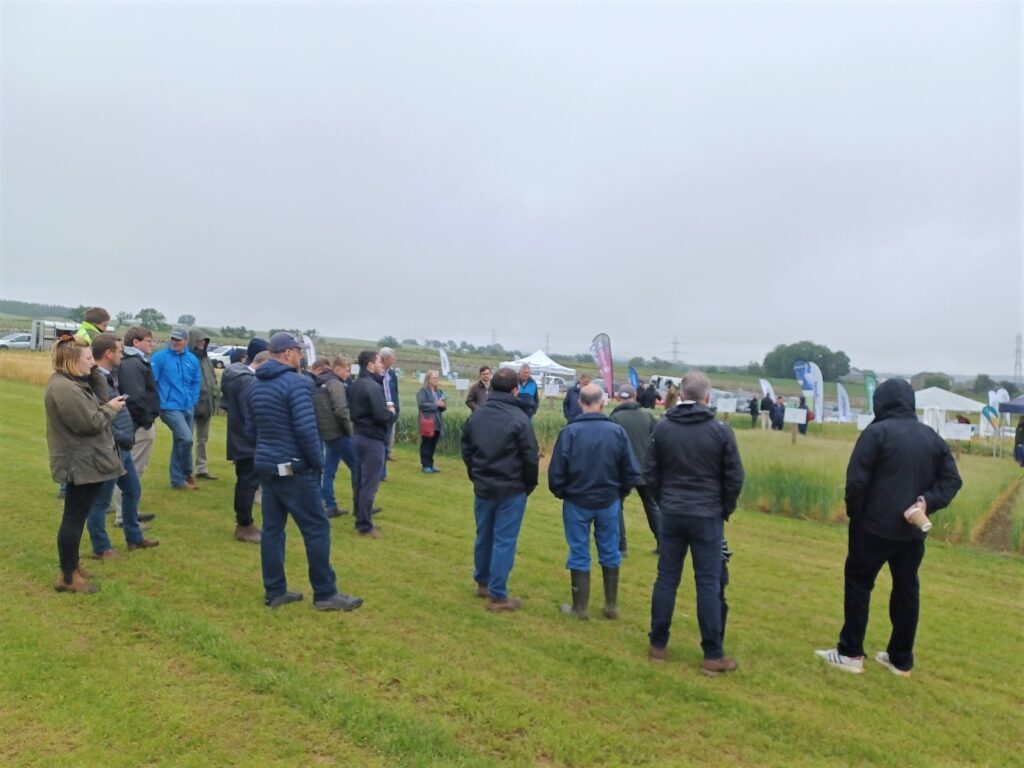Arable Scotland Event 2023: Take Home Messages
20 July 2023Over 300 people braved rather dreich conditions to attend the Arable Scotland event on 4th July. They were rewarded not only with sunshine later in the day, but also with a huge range of field plots, working machinery demonstrations and stimulating panel discussion sessions.
The theme of the event was ‘Innovating for change’ with the subtext that the need for change is urgent due to the many pressing challenges that the arable industry is facing. Net zero and biodiversity targets, policy changes and climate change all create urgent needs for the sector to adapt and change. Another pressing issue is the need to adapt rapidly to pesticide losses and a report from Scotland’s Plant Health Centre discussed at the event, highlighted that of 12 insecticide active ingredients available to the arable sector in 2020, three have already been withdrawn and eight more are classed as at moderate or high risk of withdrawal. The need for more integrated practices that reduce reliance on pesticides is acute but farmers feel that they don’t get have evidence or experience of the IPM options that will help.
This is one of the benefits of an event like Arable Scotland, where industry innovations and science are combined and on show and there was everything from robots to cover crops available to see at the site. Robots which can seek out and detect weeds in a field may sound futuristic but in fact, many of the scanning technologies are available in tractor mounted or satellite derived data and are already used to predict yields.
Varietal resistance is one of the very key tools to make crops more resilient to pest and disease threats and the Arable Scotland variety plot tours were one of the most popular parts of the day, with large groups of farmers getting the chance to view new winter wheat and barley varieties. SRUC’s Steve Hoad was on hand to explain the benefits of some of the varieties climbing the Scottish Cereals Recommended list. Details are available on this link: Scottish Recommended Lists for Cereals 2023/24 — SRUC, Scotland's Rural College
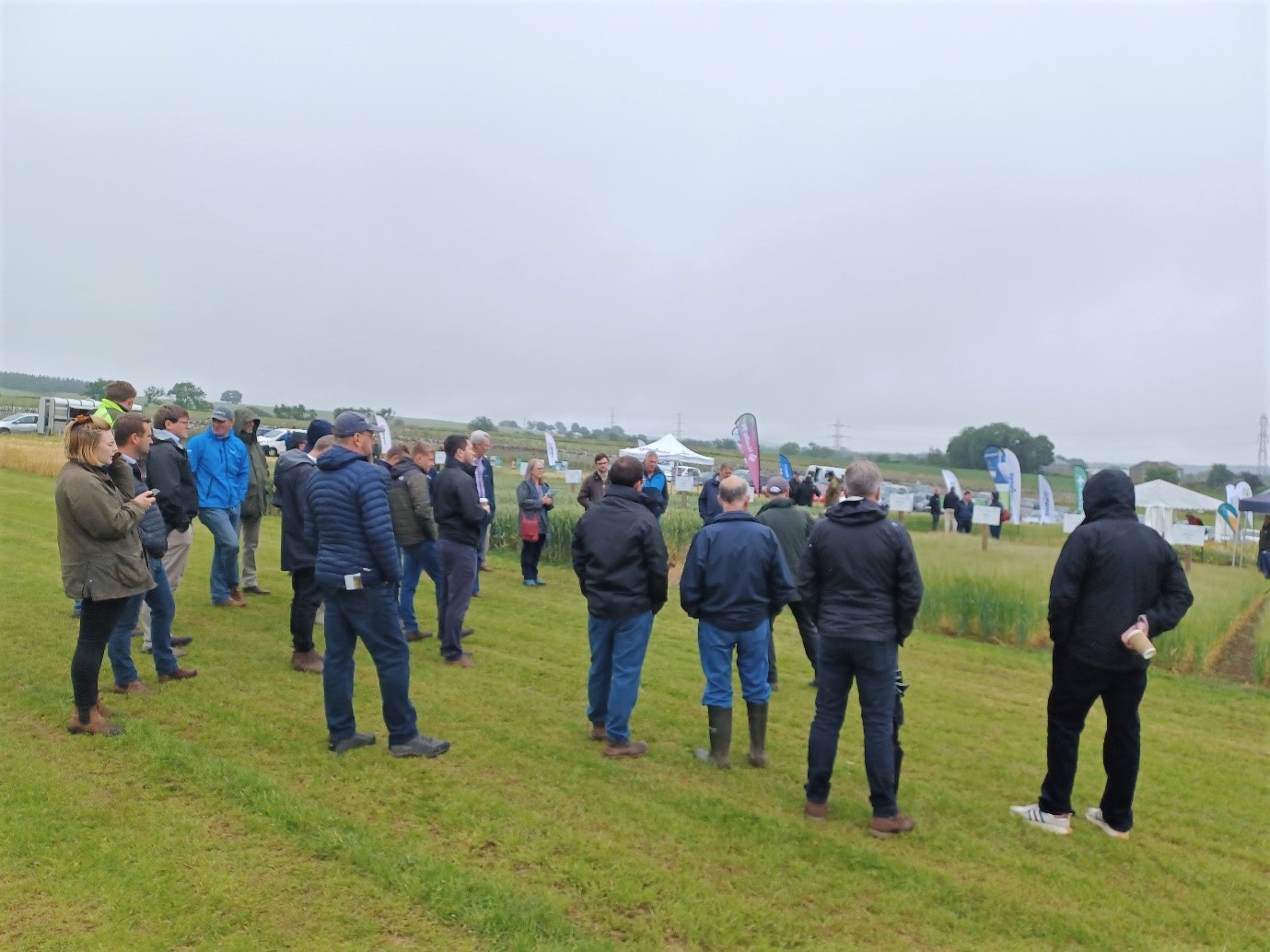
More integrated and regenerative systems were a popular discussion point. Cover crops remain challenging in Scotland with narrow windows to drill and then establish following crops. Kings Seeds were there demonstrating many of their green manures and conservation mixes. Discussion points included techniques such as under sowing current crops to shorten intervals.
New alternatives to pesticides were also available to view, with a new elictor product (Iodus) on show and also a sulphur based product (Thiopron) available for integration into programs. SRUC’s Neil Havis explained to visitors the advantages of these new innovations. Iodus, works by priming the plants initial defences and fooling it into thinking it is under attack. As a consequence, fungicide inputs could be reduced by up to 50%.
Machinery demonstrations took place throughout the day with different tillage techniques and there was a range of tractors and heavy machinery on view to growers. This was new feature to the event and was popular with visitors.
The final Arable Conversation of the day was chaired by David Michie of NFUS and many of the discussion points had come up in previous conversations. The panel agreed that policy investment can help to support farms through a period of change to meet sustainability needs and get arable farms to a position to be ready and able to supply future markets. They also agreed that, longer term, fairer market returns are needed so that arable farms can move away from government support and be financially sustainable. The whole supply chain will move to net zero, and farmers are integral to this, and must be part of the conversation. Data will be crucial to demonstrate outcomes are being met, but the expert panel were adamant that industry needs to lead on this and be in control of their own data. The necessary collaboration, innovation, skills and development to shift to more sustainable practices should add value for the whole supply chain.
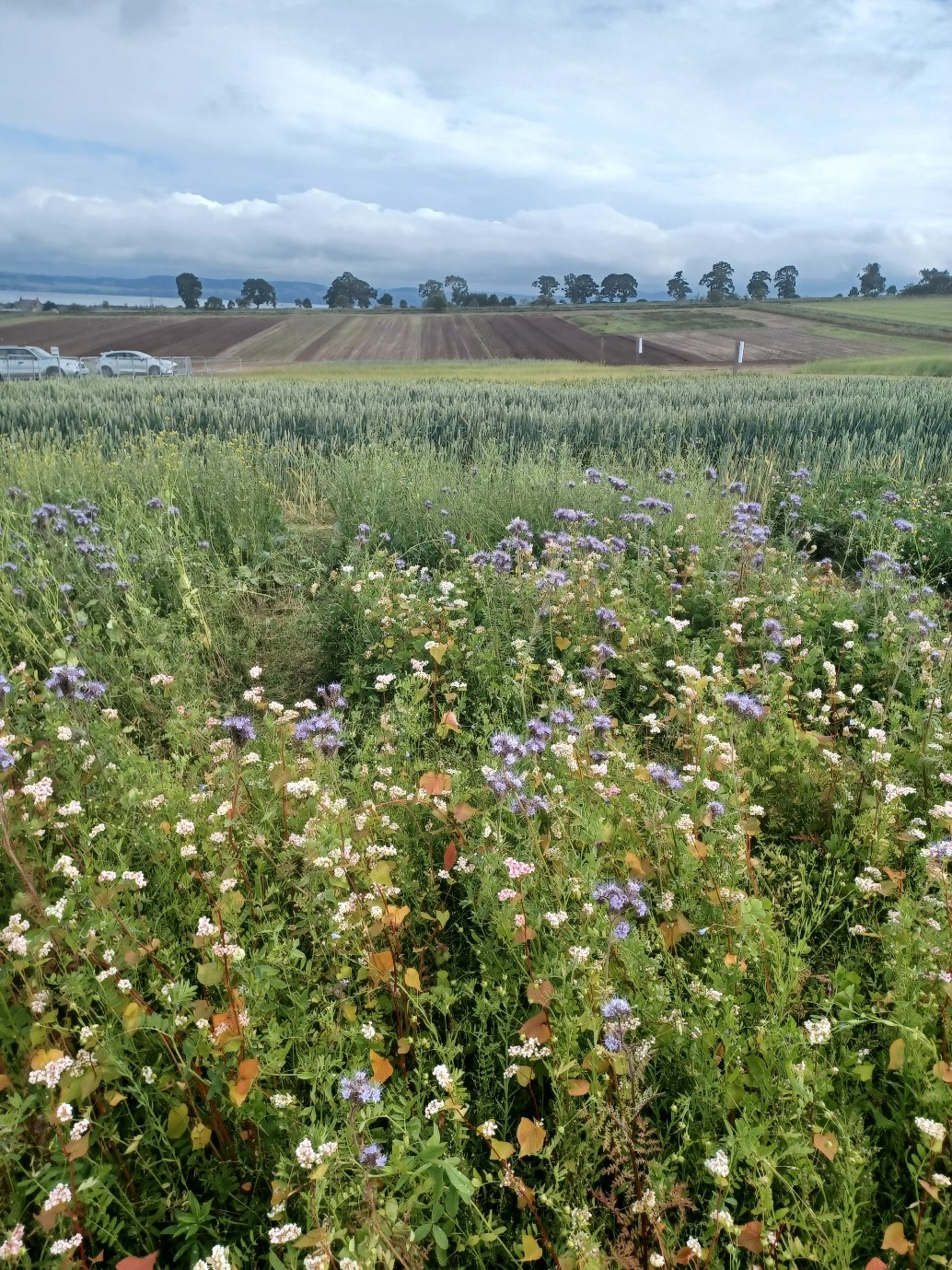
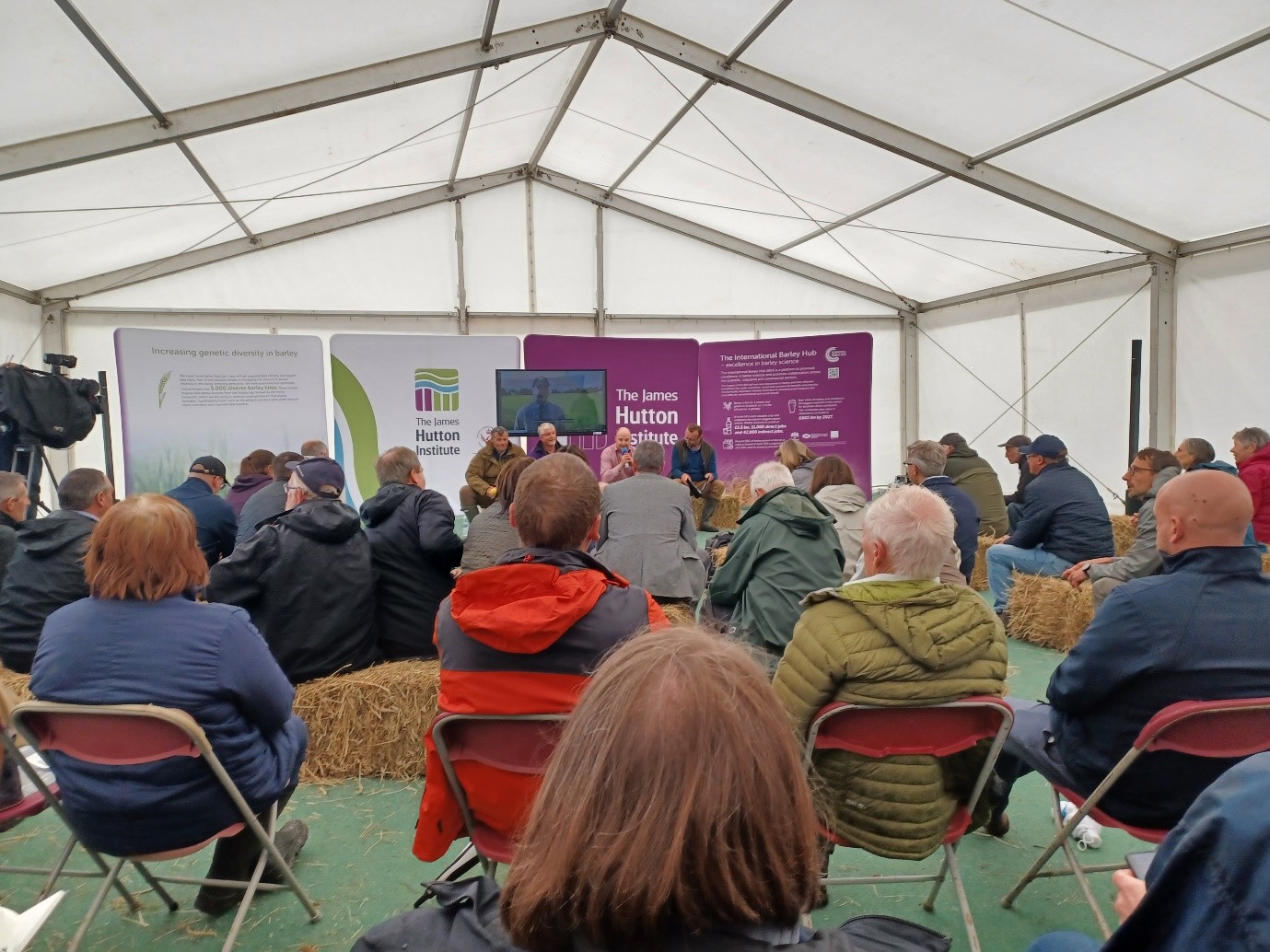
Fiona Burnett, SRUC
Sign up to the FAS newsletter
Receive updates on news, events and publications from Scotland’s Farm Advisory Service

